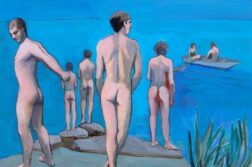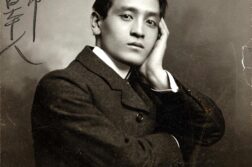The audacious French theater director André Antoine felt compelled to write to an author whose play he had accepted for production that he would have to cancel the performance. “Your play, which might possibly be performed among intimates, is not playable to a public audience,” he explained on May 26, 1891. At the read-through, the actors, case-hardened as they were to “naturalistic” subjects, had been aghast at the boldness and violence of the central concept. Antoine admitted that he had let himself be won over by the play’s literary qualities, but “I do not think that, after this trial, an auditorium of 1,200 persons could accept coolly such an inordinately abnormal and impassioned situation.” Were the author to insist on his rights, “we simply run the danger of having the Théâtre Libre closed by a huge scandal which would be quickly exploited by someone you know and which you do not seek ultimately any more than we do.”
What could have provoked such a nervous reaction?
Debussy may, as a joke, have mentioned Mourey’s Lawn-tennis to the impresario Sergei Diaghilev. We know that Diaghilev, with his homophilic predilections and fondness for scandal, would have preferred the trio to be all male. Ultimately, it was Nijinsky, who often chafed at Diaghilev’s playing “the stronger,” who made the ménage à trois two women and a youth. The ballet ends with the boy and one of the girls exiting into the shrubbery. When the composer was presented with the scenario, he boggled at the suggestiveness. He needed to have his fee doubled before he undertook to compose the score. If the depiction in a ballet of modern-day heterosexual “troilism” (three-way sex) in a ballet could shock so cultured a person as Debussy, two women pairing off would have been unthinkable. Audiences still needed to be shielded from lesbian love.
Laurence Senelick is Fletcher Professor of Drama at Tufts University and a Fellow of the American Academy of Arts and Sciences.






